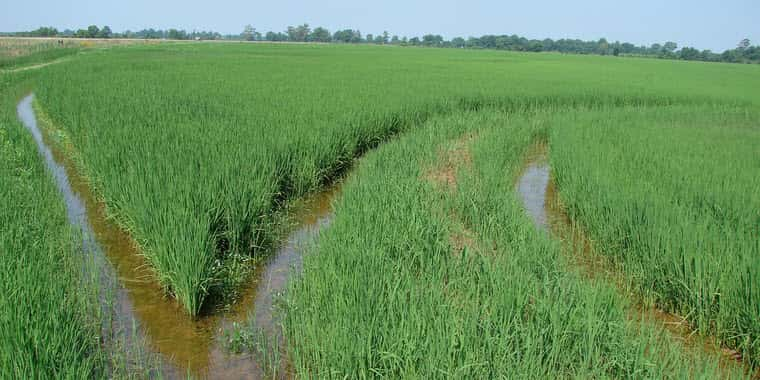A federal judge in Texas granted a preliminary injunction on Sunday, halting the Biden administration’s waters of the U.S. rule in Texas and Idaho, pending the outcome of a lawsuit filed by the state of Texas and several industry groups including the American Farm Bureau Federation and National Cattlemen’s Beef Association.
U.S. District Judge Jeffrey Brown in the Southern District of Texas in Galveston put the injunction in place as the rule took effect on Monday in the rest of the country. The injunction will remain in place pending consideration of motions to vacate the rule and send it back to the EPA.
Brown, a Trump appointee, denied a motion for a national injunction against the new rule by ag groups led by the American Farm Bureau Federation.
Texas and five agencies in the state filed a lawsuit against the EPA and the U.S. Army Corps of Engineers on Jan. 18 and a total of 18 interest groups including the agriculture, oil and housing industries filed suit a day later in the same court in Galveston.
There are two other lawsuits pending in federal court in North Dakota, where 24 states have sued the Biden administration, and in Kentucky where the state of Kentucky has sued the EPA.
The National Cattlemen’s Beef Association said in a statement it was disappointed in the court’s decision not to grant a national injunction.
“This latest WOTUS rule will place more burdens on family farms and ranches, drive up costs, and prevent cattle producers like me from making investments in our land,” said NCBA President Todd Wilkinson, a South Dakota cattle producer. “While we appreciate the court’s injunction of the rule in Texas and Idaho, we are strongly disappointed in the decision to keep this WOTUS rule in place in 48 states and I am proud of NCBA’s efforts to continue the fight against this rule.”
“The court’s decision to keep the Biden administration’s WOTUS rule in place is concerning and irresponsible,” said NCBA Chief Counsel Mary-Thomas Hart. “Without a nationwide injunction, the rule takes full legal effect today and will become an immediate burden on our nation’s cattle producers. NCBA will continue efforts to defend our nation’s farmers and ranchers.”
American Farm Bureau Federation President Zippy Duvall had a more positive take on the ruling saying, “AFBF is pleased the District Court ordered EPA and the U.S. Army Corps to halt implementation of the troubled 2023 WOTUS Rule in Texas and Idaho. The judge recognized the new rule likely oversteps EPA’s authority under the Clean Water Act, which creates uncertainty for the farmers and ranchers who must navigate the complicated regulations.
“The District Court ruling also undermines the agencies’ rationale for pushing through this new rule before the Supreme Court rules in Sackett v. EPA. These legal challenges send a clear message to EPA that it should rewrite WOTUS to limit its scope to navigable waters. Farmers and ranchers share the goal of caring for the natural resources we’re entrusted with, but we need rules that don’t require a team of attorneys to interpret.”
In granting the preliminary injunction, Brown found Texas and Idaho have a “substantial likelihood” they would prevail on the merits of the case, would face a “substantial threat” that they would suffer “irreparable injury” without an injunction, that the threat of injury outweighs the “threatened harm” to the party they seek to enjoin and that the injunction was in the public’s interest.
Brown, however, found the associations also party to the lawsuit, including the AFBF, have not shown “irreparable harm” if a national injunction is not issued.
Brown’s ruling was critical of the Biden administration’s use of two tests — significant nexus and relatively permanent — when making jurisdictional determinations.
“Even if the court assumes that Justice Kennedy’s significant-nexus test appropriately measures the agencies’ jurisdiction under the act, the rule does not accurately reflect his test,” Brown said in his ruling.
“Indeed, the rule’s substantial variance from Justice Kennedy’s test compels the court to question its legitimacy and persuades the court that the plaintiffs will likely succeed on the merits. Certainly, the court agrees with the defendants that federally regulating some interstate waters may be necessary to carry out Congress’s intent to protect the nation’s waters but the court is not convinced that the act’s text supports unrestrained federal jurisdiction over all interstate waters.
“As explained above, the court finds a substantial likelihood that the 2023 rule exceeds the agencies’ statutory authority under the act.”
Brown’s decision was seen as a setback by environmental groups that are defending the Biden administration’s approach.
Read the U.S. District Court for the Southern District of Texas ruling here.
###
DTN/AFBF/NCBA


